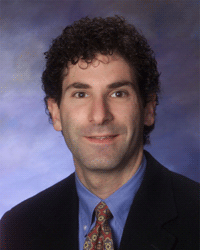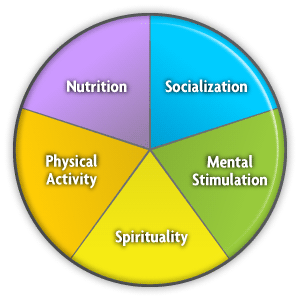Introducing our Prevention Pundit: Paul D. Nussbaum, Ph.D.

Paul D. Nussbaum, Ph.D., is chairman of the Prevention Advisory Board of the Alzheimer's Foundation of America, AFCC's sister organization and a clinical neuropsychologist and adjunct associate professor of neurological surgery at the University of Pittsburgh School of Medicine. He is an international consultant on brain health, has published many peer-reviewed articles and is the author of “Your Brain Health Lifestyle.” He is also the chief scientific officer for Fit Brains, an online brain fitness program.
The Whole Pie: An Integrated Approach to Brain Health
The human brain has finally made its way onto the radar screen of society. Research has taught us that our brain is highly dynamic, constantly reorganizing and malleable across the entire lifespan. We have even learned that the human brain can generate new brain cells in a structure critical to learning and memory (hippocampus). Indeed, we have begun to appreciate the human brain as the single greatest system ever designed in the history of our universe.
We are fortunate to have such a complex system in our own body. Weighing two to four pounds, comprised of nearly 60 percent fat and demanding 25 percent of the blood and nutrients from each heart beat, our brain needs and demands special attention. It is now believed that our brains can be shaped for health, that a brain health lifestyle can be incorporated into our own lives, and that a proactive and lifelong brain health lifestyle can help to delay the onset of neurodegenerative diseases.
The neurophysiological explanation for the positive benefits of following a proactive brain health lifestyle is called “brain reserve.” This concept refers to the fact that the human brain will respond positively to an enriched environment that promotes complex and novel stimuli. Brain cells will be produced and new dendrites (branch-like parts of the brain cell) will multiply and seek to connect chemically with other brain cells. The result is a dense network of dendritic formation that provides some protection of the brain from disease and degeneration.
While research has demonstrated a positive relationship between particular lifestyle behaviours, such as exercise, consumption of fatty fish, mental stimulation, socialization and lowering stress, and a reduction in the risk of dementia, a comprehensive approach that includes multiple lifestyle behaviours may be best for overall brain health.

I have developed and published an integrated and comprehensive brain health lifestyle that includes five major components: (1) physical activity, (2) mental stimulation, (3) socialization, (4) nutrition, and (5) spirituality. Each of these components contain several basic behaviours that have been shown to help reduce the risk of dementia and to promote brain health across the lifespan.
The five components for brain health are based on the structure and function of the brain. For example:
- Physical activity is so beneficial to the brain because it promotes increased blood flow to the brain.
- Eating fatty fish and Omega-3 fatty acids promotes build up of the fat in the brain that propels information flow.
- Remaining social and involved helps to build brain reserve from an enriched environment.
- Learning new information literally changes the structural and chemical integrity of the brain, promoting brain reserve.
- Turning inward and reducing the fast-paced stress from life is brain healthy.
This lifestyle maximizes healthy input and stimulation to the brain in ways a single behaviour such as eating fish or only exercising cannot. This is due to the fact that the human brain does not operate in a “silo” orientation. That is, the human brain integrates multisensory input and uses this information to create and even experience pleasure. The brain is most happy when input is derived from multiple sensory pathways. A brain health lifestyle that incorporates more than one of the five components, that engages more than one component simultaneously, and that does so over the lifespan will be most beneficial.
It is time for our society to recognize the miracle of the human brain, to implement basic education about the brain at early ages, to create policies that reinforce the brain health lifestyle, to include the lifestyle in health and wellness programs, to have brain health as part of insurance plans, and to apply what we know about brain health to daily life (e.g., restaurants and grocery stores should place little brain icons next to foods that promote brain health).
Most important is the need for individuals to begin their own proactive brain health lifestyle, generate brain reserve and do their best to protect their own life story from being robbed by devastating diseases such as Alzheimer’s disease.